Hyperbaric Oxygen Therapy (HBOT) is a well-established treatment that enhances oxygen delivery to tissues, promoting healing and recovery. It is widely used for conditions like decompression sickness, chronic wounds, and neurological disorders. However, many people wonder: Does hyperbaric oxygen therapy always make you tired? While some individuals report post-session fatigue, others feel revitalized. The effects of HBOT vary based on individual health, session frequency, and the body’s response to increased oxygen levels.
Read More: Alzheimer’s Disease Symptoms: Early Warning Signs and How HBOT May Help
What Is Hyperbaric Oxygen Therapy (HBOT)?
HBOT involves breathing 100% pure oxygen in a pressurized chamber. This process increases oxygen absorption in the bloodstream, which enhances healing, reduces inflammation, and promotes tissue regeneration. One of its primary medical applications is the hyperbaric chamber for wound healing, where HBOT accelerates recovery from non-healing wounds, diabetic ulcers, and radiation injuries.
Does Hyperbaric Oxygen Therapy Always Make You Tired?
Fatigue after HBOT is not universal; some people experience mild tiredness, while others report increased energy. Several factors influence how an individual reacts to HBOT:
- Oxygenation Process: The body absorbs high levels of oxygen, which can temporarily alter metabolism and energy levels.
- Increased Cellular Activity: HBOT stimulates cell repair and regeneration, which may require additional energy, leading to temporary fatigue.
- Detoxification Effect: Oxygen therapy can aid in flushing out toxins, possibly contributing to post-session exhaustion.
- Frequency and Duration of Sessions: Regular or prolonged sessions may cause more noticeable fatigue due to the body’s adjustment process.
Read More: What Is a Hyperbaric Chamber? Benefits, Uses, and How It Works
Possible Reasons for Fatigue After HBOT
Increased Oxygen Absorption
HBOT floods the bloodstream with oxygen, supporting cell function and repair. This heightened metabolic activity can sometimes leave individuals feeling drained after sessions, as the body utilizes energy for healing.

Detoxification Process
Oxygen therapy helps remove toxins and inflammatory byproducts. This cleansing process, similar to post-exercise fatigue, can lead to temporary tiredness.
Individual Response
Not everyone experiences fatigue after HBOT. Some patients report feeling more energized, while others need rest. Factors such as underlying health conditions, hydration levels, and sleep quality influence post-treatment effects.
Duration and Frequency of HBOT Sessions
Those undergoing frequent HBOT sessions may feel more fatigued as their body adapts to the increased oxygen levels. Adjusting the session schedule based on tolerance can help manage energy fluctuations.
Read More: Understanding Hyperbaric Treatment for Lyme Disease: Benefits and Process
How Long Do the Effects of Hyperbaric Oxygen Therapy Last?
The duration of HBOT benefits varies by individual and condition. How long do the effects of hyperbaric oxygen therapy last?
- Short-term Effects: Many patients experience increased energy, mental clarity, and improved circulation within hours to days after treatment.
- Long-term Benefits: With repeated sessions, HBOT can promote long-term healing, cognitive enhancement, and sustained tissue regeneration.
- Fatigue Duration: If tiredness occurs, it is usually temporary and resolves as the body adjusts to the therapy.
Read More: What Causes Diabetic Foot Ulcers and How HBOT Supports Wound Healing

HBOT and Energy Levels: Can It Also Boost Vitality?
Despite reports of fatigue, HBOT can enhance energy levels over time. Increased oxygen availability supports cellular metabolism, leading to:
- Improved cognitive function and mental clarity.
- Better physical endurance due to enhanced circulation and oxygen supply.
- Reduced inflammation, which contributes to overall well-being.
Read More: How Mild Traumatic Brain Injury Leads to Postconcussion Syndrome and What You Can Do About It
Hyperbaric Chamber for Wound Healing and Recovery
One of HBOT’s most significant applications is in the hyperbaric chamber for wound healing. This therapy accelerates tissue repair by increasing oxygen delivery to damaged areas, reducing infection risks, and stimulating new blood vessel formation. Fatigue following HBOT might indicate that the body is directing energy toward the healing process.
Tips to Minimize Fatigue After HBOT
If you experience tiredness after HBOT sessions, consider these strategies:
- Stay Hydrated: Drink plenty of water before and after treatment to support circulation and detoxification.
- Maintain a Balanced Diet: Nutrient-rich foods can enhance recovery and reduce fatigue.
- Adjust Session Frequency: Work with your healthcare provider to tailor a treatment schedule that suits your body’s needs.
- Get Enough Rest: Allow your body time to recover, especially after intensive sessions.
Read More: HBOT for Alzheimer’s: A Promising Treatment for Cognitive Decline
Conclusion
So, does hyperbaric oxygen therapy always make you tired? While some individuals feel mild fatigue, others experience increased vitality. The body’s response to HBOT depends on multiple factors, including oxygen absorption, detoxification, and individual health status. Any tiredness is usually temporary and may indicate that the body is actively healing.
Despite occasional fatigue, HBOT offers numerous benefits, particularly for hyperbaric chambers for wound healing and overall tissue regeneration. If you’re considering HBOT and want to learn how it can support your health, contact Chicago Hyperbaric today for a personalized consultation.




